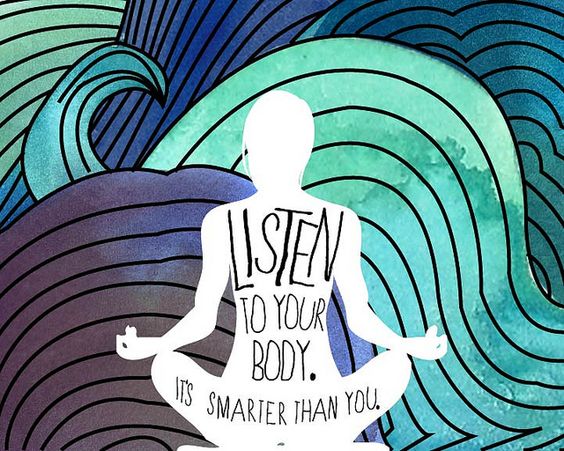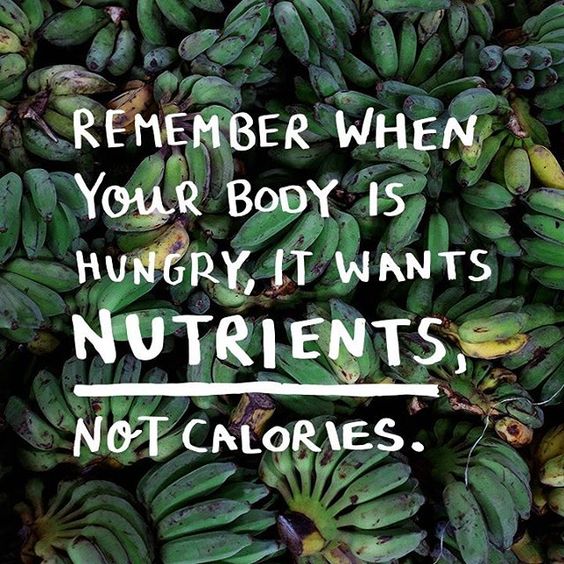Atkins, Cabbage Soup, South Beach, 5:2 Diet, Dukan Diet, Slimming World, WightWatchers, Keto, IIFMM…what do all of these diets have in common?
- They put strict limitations on what you can and cannot eat.
- They are not long term solutions for weight loss, maintenance or health.
How many times have you jumped on the band wagon of the latest fad diet, bought the books, downloaded the recipes, planned your meals and given up half way through?
How many times have you lost the weight you wanted to only to gain it back, and probably more before you’ve even broken in your new skinny jeans?
Diets don’t work.
Why? Because what you are doing when you diet is punishing your body with food and, like a child, when it is punished, your body will throw a tantrum.
Queue the cravings, the depression and the complete lack of motivation that almost always kicks in a few days into the diet.
Eating because you have to, force feeding yourself things you don’t like or want and suffering through the same boring meals day in and day out just because you want to loose weight is not what you should be doing; you should be eating intuitively.

Intuitive eating is based on the idea that if you become attuned with what your body wants and needs you will be on track to live a healthy and happy life as well as reaching a weight that is right for you. It is about being kind to yourself, forgiving perceived failures and accepting yourself for what you are and not punishing yourself for what you’re not – easier said than done, I know.
It is not a quick fix diet or an overnight change, intuitive eating is a process – it is about changing your mindset, reassessing your relationship with food and reminding yourself to listen to what your body is saying.
Rather than depriving yourself of the foods you want, intuitive eating encourages you to eat what you want and when you’re hungry – there are no set meal times, no set number of meals, no yes and no foods and no portion sizes – you can eat until you’re satisfied.
The concept of intuitive eating may seem scary for any serial dieters or those recovering from an eating disorder, the thought of eating what you want, when you want and how much you want seems crazy – it goes against everything you’ve been taught growing up.
We have all be told “don’t eat that – it’s fattening” at some point in our lives – most probably more than once. We’ve all put down the cookie, the crisps or the chocolate bar because of it.
Those words may seem like nothing when at first but consider how many times you have heard it and who it was that was telling you. I’ll put money on it being your parents, teachers or grandparents; people you looked up to, who you trusted to teach you right from wrong, right?
This is when we begin to learn to ignore what our body wants and eat what we are told to. No one is born with mental restrictions when it comes to what they eat, we are all brought into this world with an intuitive sense of when to eat – that’s why babies cry when they’re hungry and won’t always eat just because your schedule says it’s time for them to do so. However, as we get older our intuition becomes confused by too many rules and restrictions.
We are taught from a young age that there is a longer list of things we shouldn’t eat than things we should, we are also told that being fat is bad – it’s not, being unhealthy is bad. This opens the doors to bullies and bodyshaming, people who feel like it’s okay to belittle someone because they don’t look the same.
It’s easy to bully someone about their weight, either there’s too much or too little, maybe they eat food some consider strange maybe they’re a vegetarian, or a vegan, perhaps they only eat halal or they don’t eat garlic…people will find a way to pick on them.
I hate peas, always have – to the point where I will pick them out of everything, fried rice, samosas, even those bags of mixed frozen veggies. I cannot stand them, and everyone makes fun of me for it. I don’t particularly mind, I know it’s a weird thing for a 25 year old to be so anal about so I’m okay with it.
But I wasn’t always, I used to get really embarrassed and hide the peas somewhere on my plate – under mashed potato, under bread, anywhere people wouldn’t question me about them…
When we feel like people are judging us for what we eat, when we eat or how we look which is when we start feeling the need to punish our bodies for making us look like this. We systematically take away the foods that it likes or wants until we can’t take the cravings and the demands any more and we give in, then we binge until we hurt – but do we learn? No of course not, a few weeks, maybe months, later we will do it all over again.

When you constantly diet and put strict limitations on the food you can and cannot eat it can quickly lead to eating disorders developing; from anorexia and bulimia to binge eating disorder and food addiction these diseases cause you to stop listening to your body’s intuition until you no longer notice the signs of hunger or fullness.
I’m sure many people are reading this and wondering how I can advocate for something like the paleo lifestyle while also encouraging intuitive eating.
Easily.
I believe that following a paleo lifestyle is the best option for those who suffer from an auto immune disease as it has been proven to heal a leaky gut.
That being said I also believe that even when eating paleo you needn’t be strict with yourself, an 80:20 balance of wholesome foods and comfort foods is perfectly healthy. I also advocate the paleo diet as a jumping off point for those who struggle with food sensitivities or allergies, eliminate the most common aggravators and slowly reintroduce foods to see what your body does and doesn’t want – it is a form of intuitive eating.
When you have a food sensitivity or allergy it can make eating intuitively tough because obviously you have to put restrictions on yourself for the sake of your health – but that doesn’t mean you can’t still enjoy the foods that keep you healthy. The post-meal sickness you experience when you have a food sensitivity or allergy and something – be it gluten, dairy, or any other irritant – has made its way into your meal is often a cause for people to ignore their body’s voice as your brain begins to associate food with pain.
Intuitive eating is a process of reprogramming your brain and teaching your mind to listen to your body again – it is about building trust.

One of the hardest parts of intuitive eating is learning to recognize the signs of hunger and fullness, after years of eating because you have to and not because you want to it can be hard to recognize what that feels like.
How to recognize hunger:
Physical Hunger
- Gradual
- Open to all kinds of food
- Based in the stomach
- Is patient
- Occurs out of physical need
- Involves deliberate choices and awareness of eating
- Feeling of hunger stops when full
Emotional Hunger
- Is sudden and urgent
- Is often fixated on a specific food
- Is paired with a specific emotion, often negative
- Involves absent-minded eating
- Does not feel full
- Leads to feelings of guilt
These hunger and fullness signals exist so we can understand what our body needs and when it has enough – excess food that you eat when you are not hungry often goes to waste, with much of it being stored as fat rather than used to power you through your day.
In order to teach your mind to hear your body’s voice once again there are a few steps you can take:
Rate your hunger
Before you begin eating give your hunger a rating out of 10 with 10 being the most hungry. Half way through your meal reassess your hunger level, once again out of 10. When you have finished eating – note: not cleared your plate but when you are full and satisfied – rate your hunger once again.
At first it can be difficult to gauge your hunger but as you go on you will soon figure out a scale that works for you; after a while you’ll find yourself recognizing your hunger level without having to think about it. Do not fall into the trap of obsessing over your hunger, let it happen naturally, your body will let you know.

Relax
Mealtimes can be stressful for those with food problems and when your body is stressed its needs can be clouded by the anxiety. Before you eat take five minutes to relax, do some breathing exercises and just chill.
The more relaxed you are before you eat the easier it is to hear your body’s voice enabling you to make better decisions about what and how much to eat.
Take it slow
When you sit down to eat take it easy, eat slowly and contemplate each bit. Chew each bite at least 23 times before swallowing, experience the tastes and the textures of your food and really appreciate the good you are doing for your body.
Be mindful of what you are eating and rid yourself of distractions, turn off the TV, put down your phone, concentrate on eating, talk to your friends and family around the table – let that moment be about feeding your body and soul.
Stop when you’re full
Contrary to what your grandparents may preach you do not have to clear your plate. If you are full then stop, learn for next time that you don’t need that much food and eventually you will be clearing your plate easily.

It is important to keep in mind that eating normally is different for everyone, no two people are the same. Their needs are different, their bodies are different, and this is exactly why diets do not work. Trying to tell people what they should and shouldn’t eat or when they should be eating is impossible – unless it a medical reason (i.e. an allergy, intolerance, auto immunity, etc.), for some people eating a plant based diet is the way forward, for others going gluten free is what suits them best, and for the rest eating a balanced, healthy variety of food keeps them happy and satisfied.
There should be no self imposed food rules; for example, if you have chosen to be a vegetarian then eating intuitively means meat is back on the table – you don’t have to eat it but that is your choice, there is nothing that says you can’t. Because really, think about it; when you adopt a vegan, vegetarian, gluten-free, what ever, lifestyle what is the worst that can happen if you eat something you’re “not supposed to”? The police are not going to come and arrest you, you’re not going to be shunned from society…food is food and the choice is yours on what you want to eat, just remember that you can eat anything, but you don’t have to. It is about creating an eating pattern that works for you.
There are no good or bad foods, no set portions, no meal times, you body will tell you what it needs, when it needs it and when it has had enough.
You will find that once you start eating intuitively you’re eating less often, suffering from less cravings and feeling more satisfied after a meal rather than painfully full. We all may joke about having to undo a button on our jeans or needing a nap after a big meal but we really shouldn’t – we should never be in that situation.
A great exercise to help you figure out your eating pattern is this:
- List every diet you have ever tried – yes all of them, even the ones you didn’t finish.
- Write a list of the negative effects of each one
- Now write a list of the positives of each one – this cannot be how much weight you lost.
- Use the list of positives to identify the parts of each diet you enjoyed and consider how you can incorporate these practices into your daily eating – perhaps it was a recipe you loved, a workout you really enjoyed, a style of preparation you liked…
For example:
- Gluten Free – medical reasons
- Super Juice Me 21 Day Challenge
- IIFMM
- Veganism
- Whole30
- Eat Right for Your Type
Negatives:
- Gluten Free – medical reasons
- At the time there were very few gluten free alternatives so I found myself struggling to find food I could eat which made meal times difficult and eating out even harder.
- Being a committed swimmer it was difficult to replace the carbs I was used to eating while training with a suitable alternative.
- Dealing with other people’s judgments
- Super Juice Me 21 Day Challenge
- Expensive
- Lots of prep required leaving little room for spontaneous plans
- Long recovery back to eating normally again
- IIFMM
- Way too much math and planning involved
- Very limited choice of foods
- Repetitive meal plans
- Allows little to no room for dining out or spontaneous plans
- Veganism
- Felt ill, tired and sore more so than normal after 2 weeks
- Difficult to dine out in Dubai, very limited options
- No cheese.
- Whole30
- Lots of planing and prep required
- Difficult to dine out in Dubai, very limited options
- Eat Right for Your Type
- Limited food choices – many of which I do not enjoy
- Hard to find exciting recipes to try
Positives:
- Gluten Free – medical reasons
- Resolved my recurring tonsillitis issues
- Had more energy
- Took less time off school due to illnesses
- Super Juice Me 21 Day Challenge
- Lost some weight
- Psoriasis was noticeably better
- Less joint pain
- More energy
- Better mood
- IIFMM
- Made me aware of the actual nutrient content of a variety of food
- Veganism
- Discovered meat free dishes I thoroughly enjoyed
- Helped me transition from dairy milk to nut milk
- Nutrient dense food
- Whole30
- More energy and better sleep
- Improved mood
- Stayed fuller for longer and much more satisfied after every meal
- Noticeable difference in pain levels and psoriasis symptoms
- Discovered new recipes that we really enjoyed
- Felt more motivated to work out
- Nutrient dense food
- Eat Right for Your Type
- –
Things I have incorporated into my current eating pattern:
- Gluten free & dairy free alternatives
- Eating more meat free dishes
- Eating more nutrient dense food
- Juices in the mornings three times a week
- Eating more high protein vegetables
- Planning weekly meals
Maybe your lists will be longer, maybe shorter, you’ll probably also have different pluses and minuses but it will help you to identify how and what you like to eat if you’re struggling.
The three most important things to remember though are:
THERE ARE NO RULES THAT DEFINE WHAT AND WHEN YOU EAT
LISTEN TO YOUR BODY AND LET IT TELL YOU WHAT AND WHEN IT NEEDS FOOD
EVERYONE IS DIFFERENT, DO WHAT IS RIGHT FOR YOU

Do you have any questions? Do you need advice? Leave a comment below, I’m happy to help out or lend an ear. Alternatively drop me and email:
Share this post with your friends on Pintrest.


This was such an interesting read. Intuitive eating makes so much sense, though does turn what we all are told about food on its head. Especially not finishing our plate and eating whatever we want.
LikeLike
That’s the tough part, relearning – or forgetting I suppose – all the rules we’ve spent decades being taught!
LikeLike
I like the idea of juices three times a week in the mornings and introducing gluten and dairy free alternatives. Thank you x
LikeLike
It’s all about listening to what your body wants and needs, happy eating ^_^ x
LikeLike
[…] breakfast menu – served from 9am to 2pm on Fridays and Saturdays – is well balanced with sweet and savoury delights and there is no excuse not to linger on into the afternoon – […]
LikeLike
I love the idea of including juices; we love fresh juices and always try to incorporate them in our morning meals. I also am a firm believer of eating at the table without distractions like TV or cellphone rather than the couch or wherever; even though the latter seems easy; it prevents from listening to your body.
LikeLike
[…] a small treat and a craving. Cravings are often a response to environmental triggers, habit or emotions and aren’t good reasons to eat. Take the time to learn to control cravings by figuring out […]
LikeLike